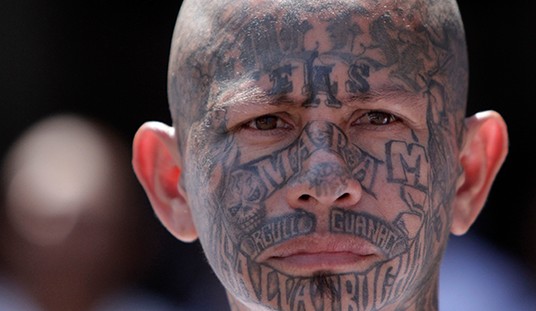Graham is always good during Q&A at hearings (a rarity on both sides of the aisle) and this is no exception. A simple logical progression: If Strzok was the lead investigator on Emailgate and we know that he didn’t want Trump to be president and it’s universally understood that the FBI recommending that Hillary be indicted would have fatally weakened her candidacy…
…should we not assume that the outcome of Emailgate was gamed to protect her? Why should we give Strzok any benefit of the doubt in assuming that his investigative decisions were pure? We shouldn’t — and the IG doesn’t really disagree. That’s the only slightly odd note here. Michael Horowitz went out of his way to say in last week’s report that Strzok might have prioritized Russiagate over Emailgate in the final month of the campaign for partisan reasons, not wanting to reopen the Pandora’s box of Clinton’s classified-material practices so soon before the vote. To the extent that there’s any dispute here between him and Graham, it’s the differing degrees to which they’re willing to assume that bias infected the probe. Horowitz thinks the decision not to charge Clinton and much of the investigation itself were vindicated, albeit with Strzok’s motives a troubling question mark. Graham thinks Strzok’s participation necessarily taints the whole process and leads us to doubt the results. The tree was poisoned by Strzok; its fruit must necessarily be poisonous too.
That’s how he concludes, in fact, by reiterating a point many righties have made since Comey’s announcement that he wouldn’t recommend charges two long years ago. If the FBI initially determined that Clinton was “grossly negligent,” the legal standard of proof under the relevant statute, why did they end up softening the language in Comey’s announcement to “extremely careless” — a nearly perfect synonym but one that let the FBI avoid echoing the statute itself in explaining why they wouldn’t recommend charging her? It was a weird, gutless linguistic dodge. Comey should have owned it and used the phrase “gross negligence,” then given his reasoning that it would be unfair to charge Hillary based on that standard when previously the DOJ had only charged people for intentional mishandling of classified info. Tweaking the language was the FBI’s half-hearted attempt to duck accountability for refusing to prosecute someone according to the law as written.
It’s funny to think of Democrats watching Graham take extreme umbrage at the Emailgate probe, though, when they’re convinced (not without reason) that it ended up costing her the presidency. What more do you want, Lindsey? And his insistence that Clinton getting indicted would have assured Trump’s victory makes me a tiny bit uneasy, even though it would have been fair for anyone — particularly Peter Strzok — to assume that during the campaign. At the time it certainly did feel like the election hung on Comey’s decision: If the FBI recommended charges, the First Woman President would need to drop out and her all-but-certain victory would be thwarted. But the outcome of the race has had me wondering ever since if the decision not to charge wasn’t a blessing in disguise for Trump. Any likely Democratic alternative, whether Joe Biden or Bernie Sanders, would have been stronger on the merits than Hillary proved to be. Maybe they’d have lost anyway because Democratic voters would have been demoralized by Hillary dropping out and divided over who the new nominee should have been, but maybe not. Certainly Biden or Sanders would have outperformed Clinton if they’d won the nomination fair and square. How could they have done worse against Trump than she did?








Join the conversation as a VIP Member